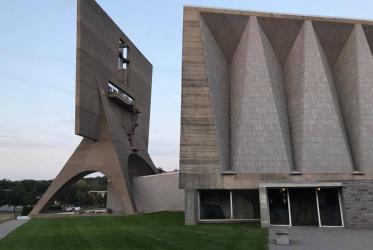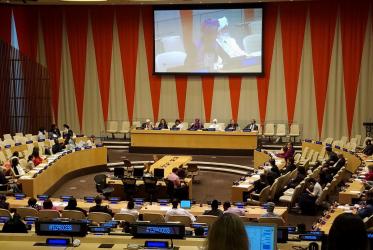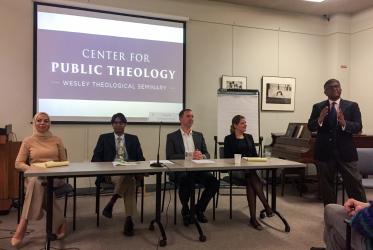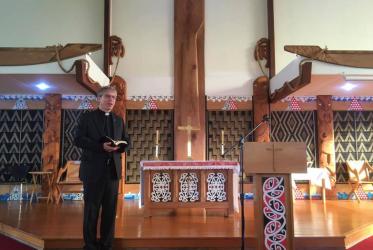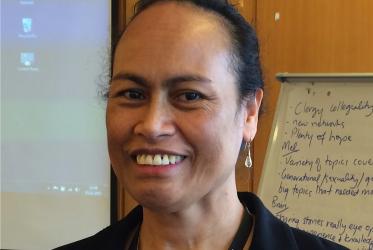Displaying 41 - 60 of 70
09 September 2017
WCC general secretary visits Aotearoa New Zealand
10 October 2016
Indigenous spirituality: can it transform injustice into justice?
01 September 2016
Religion: Way of war or path to peace?
30 June 2016
Religious leaders as agents of peace in the Americas
02 March 2016
Symposium focuses on religion, violence, extremism
04 February 2016
Church challenge: Welcoming "strangers" in a climate of fear
18 November 2015
WCC encourages churches to pray on Hiroshima Day
06 August 2015
Religious leaders urge a ban on fully autonomous weapons
02 April 2015
Christians around the world pray for unity
22 January 2015
Momentum builds for ban on nuclear weapons
16 December 2014
Indigenous faith leaders reflect on resilience and climate change
23 September 2014
Weaving together personal faith and climate change
23 September 2014
